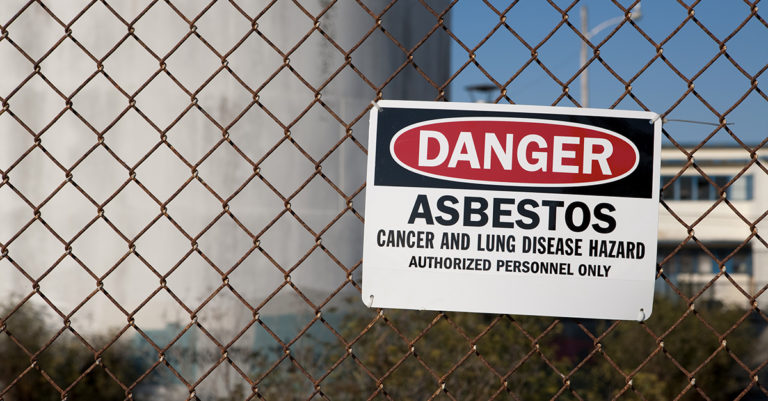
As June begins, the world marks the halfway point in the year 2020. Only six months into the year, it is perhaps already true that no other year in recent memory has been as life-altering as this one. When the COVID-19 outbreak developed into a full-fledge pandemic, lives were upended, families, communities and support systems were fractured and, for many, isolation and social-distance became the so-called “new normal.”
According to an April survey, roughly 33 percent of American adults reported feeling “more lonely than usual” since quarantines and stay-at-home orders were put in place.
As our nation continues to define this new normal, we must understand that the pain brought by the COVID-19 pandemic has been shared by all Americans.
With that being said, perhaps no one has been affected more acutely than our nation’s most vulnerable citizens, including the elderly, those with pre-existing health conditions and the selfless people who take care of them day after day.
Feelings of Isolation Are Rampant Among At-Home Caregivers
Some senior living centers have taken measures to curb public visits in their facilities, limiting gatherings to only a set number of visitors per room. While these restrictions may be helpful for one’s physical health, they can exacerbate feelings of isolation by stopping patients and caregivers from participating in routine social activities such as book clubs, arts and crafts classes, spiritual congregations, community games and meals with friends and loved ones.
On the home front, at-home patients and caregivers are also greatly impacted by feelings of isolation — feelings that are only amplified as our country continues to fight its way through the pandemic and social unrest.
Prior to COVID-19, an at-home caretaker was likely used to hosting visitors — family, friends and people from within their local communities. That all changed seemingly overnight as states took necessary social-distancing measures to protect public health and safety.
Simmons Hanly Conroy Director of Medical Relations Amy Fair, who is also a registered nurse has worked directly with mesothelioma patients for decades. In an interview, Amy described the situation unfolding at home for so many mesothelioma patients and their at-home caregivers:
“Before COVID-19, extended family, church friends and other social networks were regularly visiting in support of the patient’s ongoing fight with mesothelioma. Now, their social network is limited. They feel very isolated on top of already feeling overwhelmed while dealing with a disease. Patients may feel like they have lost their independence — and now they can’t even reach out to their support systems.”
While social-distancing guidelines remain in place, here are seven strategies Amy has heard from mesothelioma patients and caregivers that are working to keep them and their visitors safe.
- Talk to a Doctor Before Allowing Visitors
Because each case of mesothelioma is different, only a patient’s medical team will know how best to ensure the patient’s safety. A doctor may recommend virtual visits continue for a time before agreeing to allow in-person visitors. If this sounds similar to your situation, you may consider planning a long-distance virtual meal for a specific date and time. The American Association of Retired Persons (AARP) recommends ordering or making a patient’s favorite meal and then calling a family member, friend or local community member to talk together during the meal.
- See if Routine Medical Testing Can Be Done at Your Home
For standard medical treatments or procedures, such as drawing blood, monitoring vital signs, making medical assessments or administering medication, skilled visiting nurses may be able to safely come to your home rather than the patient going to a hospital or medical center. Talk to your physician or medical facility to find out if at-home services would be available.
- Reintegrate Your Support Network Slowly
Ideally, patients and their caregivers should follow state isolation guidelines as well as their physician’s guidance regarding visitors. However, before allowing visitors and caregivers to start visiting again, make sure they are symptom-free and have taken necessary quarantine measures. Limit your visitors to this small group. People from local churches and other spiritual communities may also offer “porch drop-off” services for items such as meals, medications, groceries and medical supplies.
- Stick to the CDC’s COVID-19 Recommendations
All visitors, including family members, should strictly adhere to the CDC’s COVID-19 safety recommendations, which include social-distance measures, wearing a mask or face covering and washing one’s hands frequently. For the most recent recommendations visit cdc.gov/coronavirus/2019-ncov/.
- Take Care of Your Mental Health
Patients and caregivers may experience feelings of anxiety and depression during this historically difficult time. Make sure to share these feelings with family, friends and physicians. Virtually connecting with family, doing puzzles, reading a favorite book, listening to pleasant music or guided meditations are all beneficial activities to help combat feelings of isolation for patients and their caregivers.
- Go to the Hospital in an Emergency
Patients and caretakers may still face mesothelioma-related and non-mesothelioma-related emergencies. Continue to seek immediate medical attention for any urgent medical needs, including chest pain, abdominal pain, any signs or symptoms of a stroke and, of course, any complications related to your mesothelioma diagnosis.
- Communication Is Critical for Hospital Stays
If the patient does need to be hospitalized and visitors are restricted, it is important the caregiver establish good communication with the patient’s health care providers — including doctors, nurses and therapists — regarding the patient’s treatment and health status.
Wide-spread isolation is a very real concern, and mesothelioma is never a battle a patient should face alone. Rather, fighting mesothelioma should be done with the help of family, friends and community.
The Importance of Staying Connected While Social-Distancing
According to the American Psychological Association (APA), feelings of loneliness and social isolation are linked to a number of very serious health issues. One study, conducted by Julianne Holt-Lunstad, PhD, a professor of psychology and neuroscience at Brigham Young University, says “lack of social connection heightens health risks as much as smoking 15 cigarettes a day or having alcohol abuse disorder.”
Another study by Holt-Lunstad found that loneliness and social isolation are twice as harmful to physical and mental health as being obese. Holt-Lunstad said, “There is robust evidence that social isolation and loneliness significantly increase risk for premature mortality.”
While isolation continues to be the norm for many Americans, including caregivers and the folks for whom they care, we must be creative and vigilant about staying connected to loved ones. Maintaining a semblance of one’s support system may be more important now than ever before.
Communicate with loved ones regularly by writing letters and taking advantage of technology such as phones, computers and the internet. Amid such feelings of isolation, it may feel natural to want to retreat inward, but right now nothing could be more important than keeping the lines of communication open to those who care and want to help.




